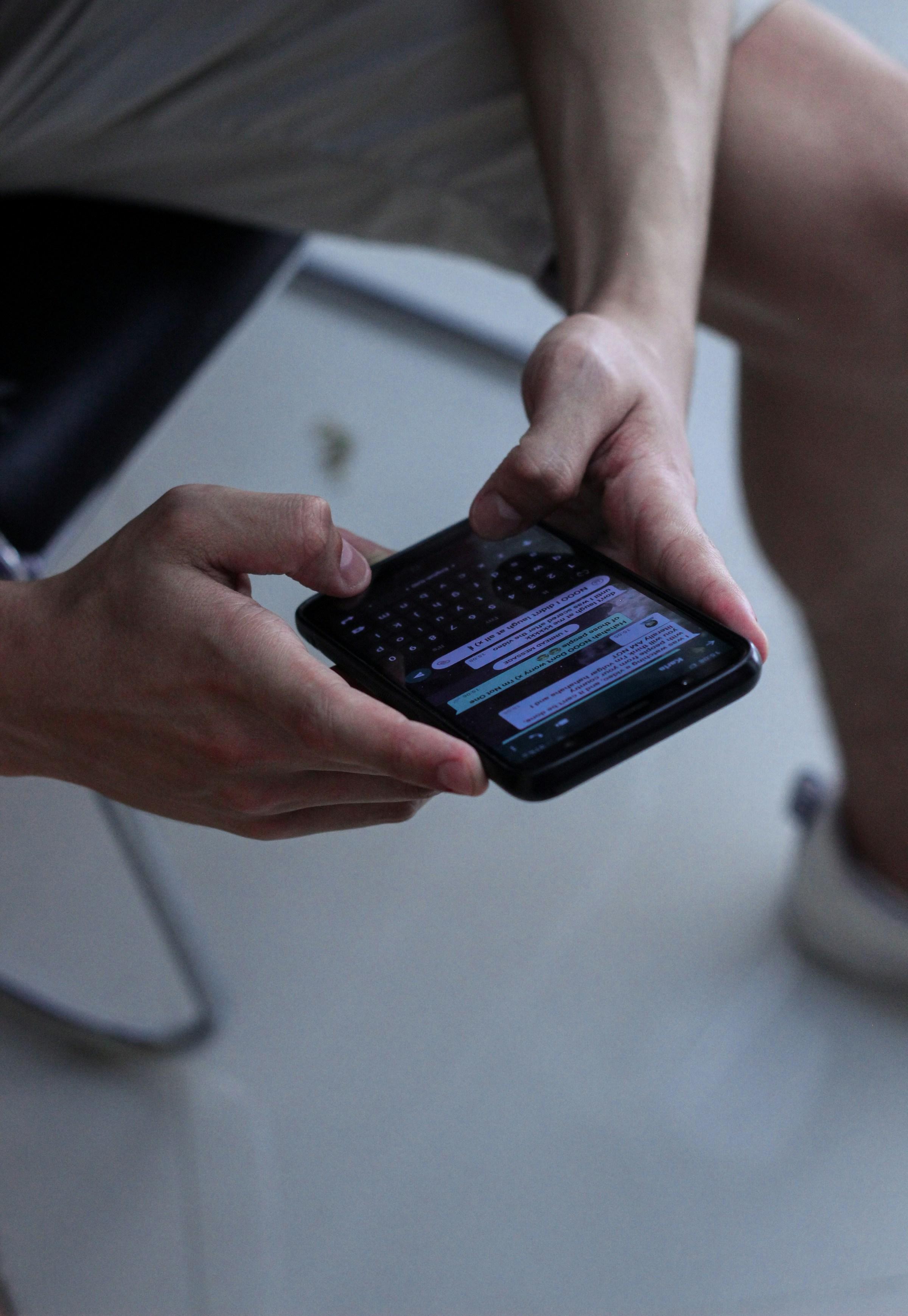I learned the hard way that sleep is not a luxury, and neither is silence. During my second company, I tried to solve every problem with more hours and more intensity. The business grew, then I broke. It was not dramatic. It was slow and quiet. I watched my best judgment thin out and my reactions get sharper while the product got heavier. I kept telling myself I would rest after the next release, after the next fundraising call, after the next hire. The next never came. What I needed was not a holiday. I needed a system that protected the human who was making the decisions.
Founders talk about work life balance as if it is a vibe you earn after success. In reality it is a set of components that keep you functional enough to build success at all. If you lead a young team in Kuala Lumpur, Singapore, or Riyadh, you need a definition that respects the pressure you carry and the context you live in. Balance is not equal time between work and home. Balance is a design where the crucial parts of your life get enough attention to keep compounding. The components are simple to name and hard to keep. I will walk you through each, how it breaks, and how to rebuild it inside the reality of a growing company.
The first component is time. Time looks obvious, but founders often confuse calendar occupancy with progress. Packing your week does not multiply outcomes. It fragments attention. Real balance starts with time architecture that separates build, decide, and connect. Build time is when you produce work that moves the product or the business forward. Decide time is when you make calls on hiring, budget, or roadmap. Connect time is when you meet customers, investors, and your team. If you mix them, everything takes longer and feels louder. Set two mornings a week for build time without meetings. Reserve one afternoon for decisions, ideally after a short walk or workout, so you do not decide from adrenaline. Keep your connect time on two fixed days so the rest of your week can breathe. Guard these blocks like you would guard cash in the bank. Time is not a bucket you fill. It is a structure you defend.
The second component is energy. Energy is not motivation. It is the biological capacity to do hard things without falling apart. Sleep, nutrition, movement, and recovery are not side quests. They are your platform. If you live in traffic heavy cities, you already lose energy on the road. If you travel across time zones for fundraising, you lose more. You cannot sprint through fatigue forever. Choose an energy baseline you can keep during hard weeks. For me it became three non negotiables. Sleep at least six and a half hours even during crunch. Eat protein and real food before caffeine. Move your body for twenty minutes before your first decision block. Do not overcomplicate it. Consistency is the lever. If your company depends on all nighters, your model is burning the operator who runs it.
The third component is attention. Attention is the engine of judgment. Everything wants it. If you let Slack, WhatsApp, and email own your day, you will live in other people’s urgency. I am not interested in lectures about focus. I am interested in rules that hold under pressure. Use notification windows instead of constant availability. Check messages at the top of the hour or in two fixed blocks. Post one rule for your team on what counts as urgent and which channel to use. Your brain needs quiet pockets to connect dots and notice risk. Without attention hygiene, you create self imposed chaos that feels like hustle and delivers the opposite.
The fourth component is boundaries. Boundaries are not walls. They are agreements that create trust. If you work across cultures, the absence of clear boundaries can look like generosity at first and collapse later. Decide when you are reachable, what approvals need your eyes, and what your direct reports can own. Publish this to your leadership channel. Share it with your spouse or partner too. If you have children, align on one sacred window where you do not work, even during fundraising. It can be bedtime stories at nine. It can be breakfast at seven. Defend it. The point is not to be perfect. The point is to be predictable enough that the people who rely on you do not feel like they come last. People leave teams where the founder is never mentally present, even when physically in the room.
The fifth component is support. Balance collapses when everything depends on you. Support has two sides. At home it looks like childcare plans, shared chores, extended family coordination, or a helper you treat with dignity and clarity. At work it looks like a chief of staff, a strong EA, or a senior IC who can run a meeting without you. Founders resist this because they think support is a luxury. It is not. It is a multiplier. If you cannot afford full time help, buy hours. Start with the task that frees your highest value time. That might be bookkeeping, investor research, or weekly logistics. In the Gulf, I saw teams where a founder finally hired an EA and their investor updates improved overnight. Not because they became smarter. Because the support system caught the tasks that drained their focus.
The sixth component is money. Money does not buy balance, but it buys options that protect it. Personal finances and company finances are linked in the early stage whether you admit it or not. Set a personal runway that lets you sleep. It does not need to be large. It needs to be clear. Know your monthly non negotiables, and keep three to six months liquid. Pay yourself something predictable, even if small. The psychological stability compounds into better decisions. Inside the company, do not accept meeting invites that ignore burn and cash in. Your calendar should map to the moments that extend runway or accelerate learning. If your week is full of nice conversations while your cash clock is ticking, your balance talk is theatre.
The seventh component is meaning. Meaning sounds soft until you lose it. Early on, founders accept every opportunity, then wonder why they feel empty. Meaning is the filter that keeps you from chasing every shiny road. Write a simple operating sentence for the season you are in. Mine looked like this. Build a product that helps small retail sellers predict cash needs. Keep the team as learners. Protect family dinner twice a week. When I looked at new ideas or partnership offers, I measured them against that sentence. Meaning gives you a north star when the noise spikes. It makes saying no feel like alignment, not guilt.
The eighth component is seasonality. Life has seasons. Startups do too. Pretending otherwise creates shame and burnout. There will be seasons of sprint when a release is due or a term sheet is near. There will be seasons of repair when you fix debt and rebuild trust. There will be seasons of learning when you talk to users and rewrite assumptions. Name the season with your team and your family. Adjust expectations on both sides. In sprint season, shorten family commitments but keep one ritual. In repair season, take that long weekend. In learning season, widen your reading and slow your travel. When everyone knows the season, sacrifices feel chosen, not stolen.
The ninth component is environment. Where you work and where you recover matters. If your office or home setup forces constant interruption, your balance will always wobble. Create one space where work is deep and one space where life is sacred. For a founder in a small apartment, this can be a desk by the window for work and a dining table that never sees a laptop. For a founder in Riyadh who often drives, it can be car time for calls and home time for quiet. Design your environment so your habits have less friction. When friction drops, consistency rises. That is balance in practice.
The tenth component is conversation. Founders hold too much in their head. You need a place where you can be precise and honest about pressure. This can be a coach, a mentor, a founder circle, or two friends who refuse to let you lie to yourself. The conversation should be regular and structured. What was the hardest call this week. What did you avoid. What would break if you doubled growth. When you say it out loud, you reclaim agency. Silence breeds anxiety. Anxiety breeds bad decisions.
The eleventh component is measurement. Balance fails when it is invisible. You do not need a fancy dashboard. You need a small scorecard you can check weekly. I use five signals. Hours of real sleep. Number of deep work blocks completed. Number of family rituals kept. Energy on Monday morning measured by a simple one to five. One decision I am postponing and why. If the numbers trend down for two weeks, that is my trigger to intervene. I cancel meetings, delegate aggressively, and reset sleep first. Balance improves when you treat it like a system with feedback, not a mood that comes and goes.
This is the moment to tie it together into a founder friendly frame. Think of balance as a triangle with time, energy, and attention at the corners. Boundaries and support sit on the edges, reinforcing the shape. Money and meaning are the base that keeps the triangle standing. Seasonality, environment, conversation, and measurement are the rules of maintenance. When one corner weakens, the whole structure bends. You fix the corner, then you check the edges, then you test the base. You do it in that order because a tired founder cannot set boundaries, and a scattered founder cannot hear meaning.
People ask me if this is realistic during intense growth. I say yes, because the alternative is failure with a nicer story. Your investors want a steady operator who makes good calls. Your team wants a leader who shows up with clarity. Your family wants to know they matter. You cannot satisfy all three by being everywhere at once. You satisfy them by being clear about the season, disciplined about your structure, and honest about your capacity.
Let me offer a simple reset you can run this week. Pick one deep work slot and protect it for something that will multiply future time. That might be a hiring scorecard, a clean handover doc, or a product decision that kills a distracting feature. Choose one ritual at home and honor it without your phone. That might be breakfast with your partner or bedtime with your kids. Finally, choose one support move and make it real. Hire two hours of help. Delegate investor research. Automate a weekly report. Small, boring, repeatable moves rebuild balance faster than grand gestures.
The components of work life balance are not a checklist to impress anyone. They are the parts of your life that let you keep building without breaking. They matter because your company lives or dies on the quality of your decisions and the steadiness of your leadership. If you need a starting line, use the triangle. Guard your time. Protect your energy. Direct your attention. Build edges with boundaries and support. Stabilize the base with money and meaning. Respect the season you are in. Design your environment. Keep a real conversation going. Measure what matters. Do this imperfectly and consistently. That is the only balance that lasts.
For search clarity, yes, these are the components of work life balance that a founder can actually keep. You do not have to earn them after you exit. You use them so you can get there with your health, your relationships, and your integrity intact.















